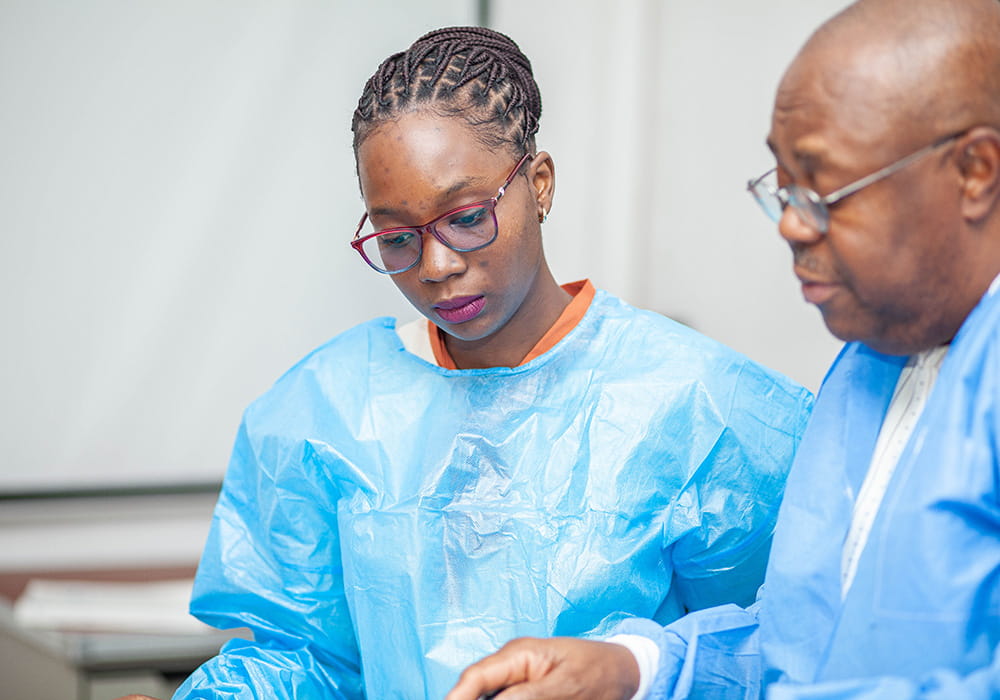

At ADLM, advocacy and outreach are central to our mission of advancing laboratory medicine and improving patient care. We help shape public policy, scientific standards, and healthcare delivery.


Lab results can disagree depending on where tests are performed. We work toward patients receiving the same diagnosis no matter where they live.

We collaborate on advocacy priorities among members, scientific experts, and policy leaders. We help laboratory science influence health outcomes by advocating for:
- Equitable access to testing
- Regulatory reform
- Innovation in diagnostics
- Pediatric laboratory medicine
You can get involved by participating in advocacy campaigns, contributing to comment letters and position statements, or joining one of ADLM’s working groups. Together, we can create a healthier future for all.
Featured position statements

ADLM supports efforts to reduce barriers to pediatric testing and care.
ADLM supports expanding consumer access to direct-to-consumer (DTC) laboratory testing services.
ADLM recommends that CLIA remain the primary mechanism for overseeing clinical laboratories.
ADLM supports the creation of a national repository to collect and store pediatric samples from healthy children.
ADLM endorses public-private efforts to maintain, improve, and expand newborn screening programs.
News and Resources
Keep up with fast-moving news and policy actions affecting clinical laboratories and the healthcare field and use our tools to act on grassroots campaigns.
The Lab Advocate helps you stay informed about issues shaping the profession — from regulatory changes and reimbursement trends to advances in diagnostics and testing standards.

-
Position statements
ADLM identifies priority issues for members and communicates the association's positions to policymakers through research-based position statements.
-
Comment letters
Explore official statements sent to Congress and federal regulatory authorities.
-
Laboratory Voice
Learn how to take quick action to contact your representatives on key issues in laboratory medicine.

Advocacy toolkit
Featured press releases

ADLM urged HHS to reinstate the Clinical Laboratory Improvements Advisory Committee (CLIAC)
ADLM called on Congress to increase funding for the Children’s Health Insurance Program and newborn screening to create a more equitable healthcare landscape.
The FDA rule on LDT regulation will limit patient access to essential tests and stifle innovation needed to deliver equitable, effective care for all.

Featured comment letters

This legislation would preserve advances in state newborn screening programs.
We support the CDC’s approach and urge Congress to provide the funding needed to improve PRIs and ensure quality and equitable care for our country’s children.
The USPSTF has issued nearly 300 evidence-based recommendations across 90 topics to support preventive care and help people live healthier, longer lives.
CLIAC assures accuracy and reliability of laboratory test results that inform patient care and treatment.
CDC’s public health data modernization efforts to build and maintain world-class data systems and workforce meet the nation’s ongoing need to safeguard health.





Policy briefings
ADLM’s advocacy extends beyond national borders to strengthen the practice of laboratory medicine and create a healthier, more connected world. Through strategic partnerships and educational initiatives, we work on:
- Advancing diagnostic excellence
- Supporting workforce development
- Promoting equitable access to testing
By collaborating with international laboratory organizations, government agencies, and academic institutions, ADLM helps to share best practices and build global standards that improve the quality and consistency of diagnostic care.

Hear from participants in ADLM's global educational programs about how these initiatives have impacted their lives, as well as their work in laboratory medicine.



Mukoshya Kalunga, BSc, took knowledge gained from a previous ADLM workshop in Zambia to share with an audience and maintain connections with her peers.
